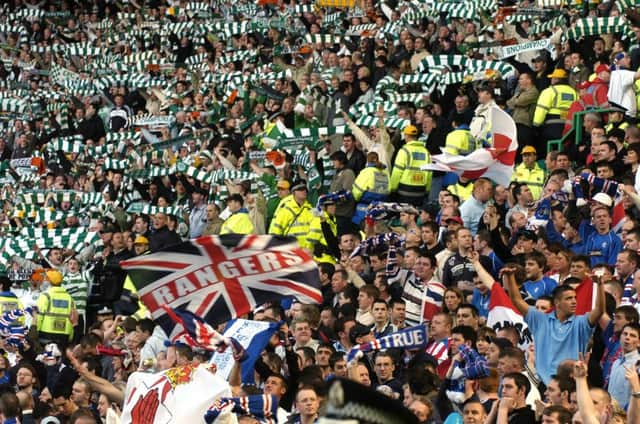Chris Marshall: Football offensive behaviour act a knee-jerk reaction


Introduced in 2012, the Offensive Behaviour at Football Act has split opinion since its inception. The Offensive Behaviour at Football and Threatening Communications (Scotland) Act – to give it its full name – was borne out of a 2011 Scottish Cup replay between Celtic and Rangers.
In scenes described as “shameful” by then First Minister Alex Salmond, managers Ally McCoist and Neil Lennon clashed on the touchline, while three Rangers players were sent off.
Advertisement
Hide AdAdvertisement
Hide AdDespite a knee-jerk rush to introduce legislation in the months that followed, police were not lacking in powers at the time, arresting 34 people inside Celtic Park for a variety of sectarian, racial and breach of the peace offences. The police’s ability to make those arrests undermines the argument that legislation was needed and gives credence to the view the SNP would attempt to legislate its way out of a paper bag.
Last week the act came under renewed focus when one of the country’s most eminent historians, Professor Sir Tom Devine, called the legislation the “most illiberal and counterproductive act passed by our young parliament to date”.
Sir Tom said the act had been “pushed through” with no concern for expert opinion and had become “a stain” on the Scottish legal system.
Celtic then re-iterated calls for the legislation to be repealed, as did Scottish Labour which has pledged to scrap the act if the unthinkable happens and the party wins a Holyrood majority in May.
Figures from the Scottish Government show there were 96 proceedings under the act in 2014-15 and an 82 per cent conviction rate.
That compares well with the previous year, where just 57 per cent of 161 cases resulted in a successful prosecution.
But Scottish football has in that time been largely starved of the fixture the legislation was brought in for. Since ending up in the Third Division in 2012, Rangers have met their Old Firm rivals just once, with Celtic triumphing 2-0 in a drab cup tie last season.
The two sides are due to meet again next month at Hampden in a fixture which is eagerly awaited by fans, but not by Police Scotland.
Advertisement
Hide AdAdvertisement
Hide AdThe game could be the biggest test of the legislation yet, with familiarity likely to turn to contempt next season if Rangers are promoted back to the top flight.
In the years since the legislation was introduced it appears very little has changed in Scottish football.
If the purpose of the act was to eradicate sectarianism from the stands, then it can only be judged a failure.
That’s not to say the malignancy at the heart of the Scottish game should be allowed to fester unchecked. A situation where one football fixture can lead to a significant spike in domestic abuse incidents, for example, should not be tolerated in modern Scotland.
But rather than seeking to criminalise individual fans, the onus should be put on the clubs themselves.
Only through the docking of points or the closure of stadiums will we finally be rid of fitba’s scourge.